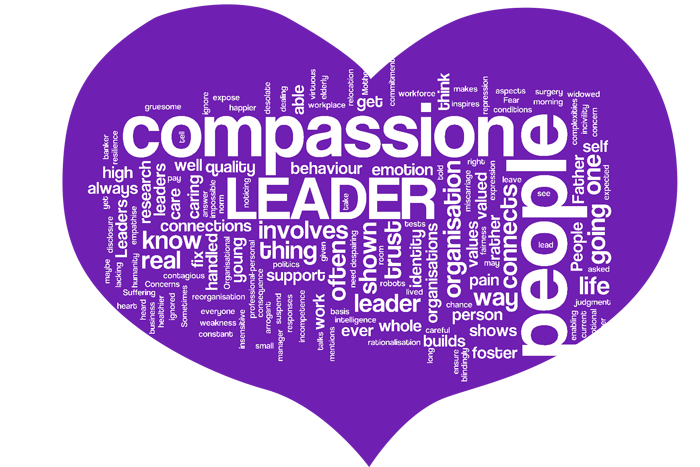‘There is always pain in the room’ (Frost 2003) This week alone I have heard that someone’s frail elderly Mother is going through surgery, a city broker is dealing with a heart problem and has more tests to endure, a banker is despairing about yet more indecision about the rationalisation of her team with the implications for relocation for all the families. Suffering is pervasive in organisations. Yet it is often either ignored or inexpertly handled. Some gruesome examples from real life:
• A Father dies and a manager is asked –‘How long do you think it will take to get over this? Three weeks, maybe?’ The answer was unprintable.
• The young woman widowed after 11 months of marriage. ‘You are young. You will love again’ The result – horror that she might be so fickle.
• The miscarriage. No-one ever mentions it again.
They avoid her in the corridor. The consequence – disengagement and a slowing of recovery. And, of course, no one ever talks to the desolate Father-to-be. We differ from each other in our ability to be compassionate. People often mean well, don’t know what to do, want to know how they can fix things or are worried that they will say the wrong thing. All of which makes them appear utterly lacking in compassion. How important is it for a leader to foster compassion in an organisation? On the one hand there is the humane argument about the right thing to do and, on the other, the blindingly obvious fact that all you have are your people. Until robots are able to replace them, you are stuck with these real life problems. The research shows that compassion at work matters because it impacts on resilience and builds a positive identity within the business. People are healthier and happier. It connects people to each other, it connects them to the organisation through loyalty and commitment and it connects them to their own humanity. Above all, research shows it builds trust in the workplace. Without trust, your workforce will be less engaged. Witnessing compassion elevates and inspires more compassion, giving and caring. Compassion is contagious. It is a virtuous circle. Where the whole person is valued, they are not expected to leave their personal identity at reception every morning. Some of the current working conditions in our organisations expose people to incivility, disrespect, injustice, corrosive politics, constant reorganisation and incompetence on a daily basis. Becoming compassionate involves noticing, feeling, interpreting and responding to the other’s pain. Being a compassionate leader involves building an environment where mere self – interest is not the norm, where high quality connections are encouraged between people, where the whole person is valued and shown care and respect. Sometimes there is a need for the more formal support of coaches or counsellors but more often compassion is shown in the small, inconsequential aspects of behaviour that reinforce how people are cherished and also in the way that bullies and the insensitive are handled and given the chance to develop higher skills of emotional intelligence. Organisational habits can work against this. No trust means no-one will admit to human weakness until it is impossible to hide. No expression of emotion can lead to dangerous repression. Fear of crossing professional-personal boundaries can stultify people’s more caring responses. Concerns about fairness-‘well, if I do it for one, I have to do it for everyone’ – can eliminate concern. Ineptitude leads to avoidance. Leading the way in compassion involves being able to:
• pay attention – compassionate leaders know what their people are going through
• Empathise – compassionate leaders realise that emotion is a data stream they cannot afford to ignore and they become literate in their reading of feelings
• Feel – and to let others see those emotions through careful self disclosure • suspend judgment – a compassionate leader understands that how they tackle challenges may not be feasible for all
• Be rather than do – you can’t always fix what people are going through. It would be arrogant to think you could find a ‘solution’ for some of the complexities of life. On occasions, being compassionate is the best and only thing you can offer. You can tell whether an organisation has compassion by the stories that are told by its employees about the way people have been treated, the care they have been shown and the values that have been lived. Leaders can create and support compassion – enabling routines rather than old, more psychopathic ways of treating people. They can ensure those high quality connections get built. They can foster real values in action by demonstrating good compassionate behaviour themselves. Averil, François and all at White Water Group





